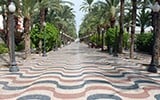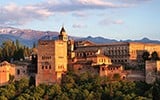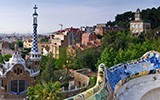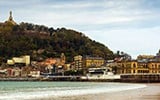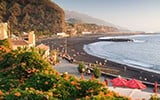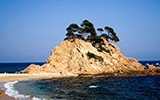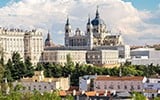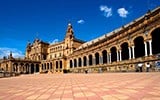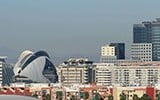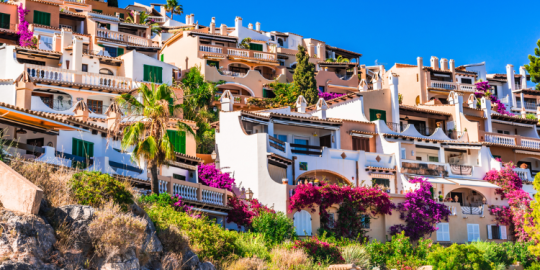Starting a new business in Spain is exhilarating and daunting at the same time. For starters, there are many regulations ...
Living in Spain guide for expats
All the information you need to relocate and live in Spain.
Our selection of articles for expatriation in Spain
Moving to a foreign country can be both exciting and challenging for expats. As an expat settling in Spain, it is important to ...
Valencia is the capital of the province of Valencia, a Mediterranean destination of striking architecture, vast market gardens ...
From its culture and cuisines, history and climate, Spain is a dream destination for expats. If you plan to live, work and ...
Opportunities to work towards your qualifications, expand your horizons, form lifelong connections and learn one of the most ...
The Canary Islands is Spain's southernmost autonomous community, an archipelago in the Atlantic Ocean, more than 600 miles ...
Tenerife is the largest and most populous of the seven Canary Islands, a Spanish archipelago in the Atlantic Ocean that is ...
Malaga is a busy port city on southern Spain's Costa del Sol, a place that blends ancient history with the freshness and ...
Seville is the capital of the autonomous community of Andalusia and home to its government. It is a lively Mediterranean ...
Dreaming of settling into a modern neighborhood with great restaurants and green spaces or a luxury penthouse in the historic ...
Madrid, the bustling capital of Spain, is a popular destination for thousands of expatriates each year. With its rich cultural ...
Networking is an important way of making contacts in the business world and to hear about career opportunities. Madrid's ...
Barcelona is Catalonia's cosmopolitan capital and an ideal place for university education. The city has a well-established ...
Barcelona is the economic, cultural and administrative heart of Catalonia, a creative, cosmopolitan and innovative city known for ...
When making your big move to Barcelona, one of the most important decisions is where you will call home. Finding a comfortable ...
About Spain
Geography of Spain
Stretching over some 505,988 km² (195,363 square miles), Spain is bordered by France and Andorra to the north, Portugal to the east, and by the Mediterranean Sea and the Bay of Biscay. The country comprises 17 autonomous regions, and the largest cities are Madrid, Barcelona, Valencia and Sevilla.
Good to know:
Most expats decide to settle in the big cities such as Madrid, Barcelona and Valencia because of their attractive employment opportunities. Other desirable places include Mediterranean coastal towns, cities and resorts such as Alicante and Malaga, popular holiday destinations that attract retirees who want to spend their twilight years enjoying the sun.
Demographics of Spain
As of January 2019, the Spanish Statistical Office estimated the population of Spain to be 46.93 million. The most populous city in Spain is Madrid, with around 3.3 million people, although the wider metropolitan area is estimated to be approximately 6.66 million people. The Spanish capital is the country's largest and most important city and is the third-largest in Europe by population, after London and Berlin.
Good to know:
According to the United Nations, there are 5,947,106 immigrants in Spain, making up 12.8% of the population. The majority come from Morocco, Romania and the United Kingdom, followed by expats from Italy, China, Colombia and Ecuador.
Spanish culture
The Spanish flag consists of three horizontal stripes of red, yellow and red. The middle yellow stripe is twice as big as each red stripe. King Charles III chose the flag in 1785 following a contest to replace the previous design. Centred on the yellow stripe is the Spanish coat of arms, which is a composition of six other coats of arms - those of Granada, Castile, Leon, Aragon, Navarre and the House of Bourbon.
The country's national anthem is the Marcha Real, which dates back to 1761, making it one of the oldest in the world. There are no official lyrics despite competitions to add them. The official anthem was composed as a military march by Manuel de Espinosa to provide a beat for soldiers. It was adopted as the official march of Spain in 1779 and later became the national anthem.
During Franco's dictatorship, the anthem was given lyrics, but they were dropped after the dictator's death in 1975.
Spain is a country with a complex cultural mix. While most people consider themselves Spanish, many also refer to themselves as Basque, Catalan or Galician first. The official language is Spanish or Castilian, but many other regional languages are spoken. They include the Basque language (Euskara), Galician and Catalan.
Spain is the birthplace of many prominent figures from the arts who have made contributions far beyond its borders. Among them are the artists Pablo Picasso and Salvador Dali, filmmaker Pedro Almodóvar and the writer Miguel de Cervantes.
Good to know:
Among the best known of Spain's traditions are flamenco, bullfighting and tapas. These are small snack-like dishes that can be hot or cold. In many establishments, patrons receive one complimentary tapas dish when they order a drink.
Economy of Spain
Spain's economy is returning to good health following the years of recession. With a GDP of $1.3 trillion, it is the fifth-largest economy in the European Union and the 13th-largest in the world.
The major industries driving the economy are tourism, manufacturing, agriculture, energy and electricity and information and communication technologies.
Good to know:
Spain is a member of the European Union, NATO, the United Nations, the Organisation for Economic Co-operation and Development (OECD), the World Trade Organisation (WTO) among other international organisations.
Politics of Spain
Spain has a constitutional monarchy with a parliamentary form of government. The reigning monarch is Felipe VI, who ascended the throne in 2014 following the abdication of his father, King Juan Carlos I.
While the king is the head of state, the Spanish constitution does not attribute to him any executive powers. At the national level, the executive power is exercised by the government. The head of the government is the prime minister whose official title is the President of the Government.
Below the national government are 17 autonomous regions, each with their own executive, legislative and judicial powers.
Concerning the law, Spain's judiciary is independent.
Climate of Spain
Spain is a vast country with diverse and varied climates. The southern part of the country has a hot/warm-summer Mediterranean climate with dry and hot summers and moderate winters. North-western Spain is predominately characterised by a warm-summer Mediterranean climate with warm and dry summers and wet winters.
Meanwhile, the northern part of the country, especially Asturias, Galicia and the Basque country, experiences an oceanic climate that typically features cool summers and cool but not cold winters. The south-eastern part of the country, such as Almeria, Murcia and Alicante experience a semiarid climate while many parts of north-eastern Spain have a warm summer continental climate.
Good to know:
Spain's long Mediterranean coastline encompasses the Costa Blanca and the Costa del Sol among other places and boasts more than 300 days of sunshine per year. Consequently, many expats seeking a better quality of life are drawn here by the warmth and proximity to the sea.
Useful link:
Spain city guide
Latest housing offers in Spain
Latest job offers in Spain

